MercoPress. South Atlantic News Agency
Tag: Brazil economy
-
Friday, July 11th 2014 - 06:36 UTC
Brazil's next government will have to implement a tough fiscal tightening, says Fitch
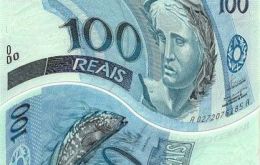
Fitch Ratings on Thursday reaffirmed Brazil's “BBB” credit rating with a stable outlook, but added it expects the next government to control spending in order to avoid additional fiscal deterioration that could trigger a downgrade.
-
Thursday, June 26th 2014 - 05:07 UTC
Brazil current account deficit in May posts a record; World Cup should help in June
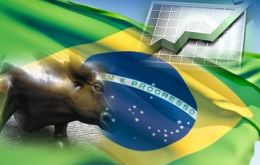
Brazil had a current account deficit of 6.635 billion in May, above the previous record high of 6.356 billion for this month posted last year, central bank data showed this week. It was the widest on record for the month of May as Brazilians spent more on international travel and foreign companies sent profits and dividends abroad. Brazil's current account deficit in April was 8.291 billion.
-
Thursday, June 12th 2014 - 06:53 UTC
World manufacturing on the upturn but fragile in emerging economies
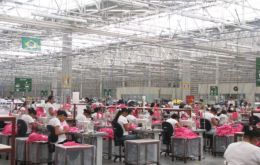
World manufacturing is in a phase of steady growth due to the improved financial condition of industrialized countries, especially in Europe, and China’s continued growth, the United Nations reported on Wednesday.
-
Tuesday, June 3rd 2014 - 05:44 UTC
Good news from Brazil: trade surplus in May and primary surplus in April

Some good news for the beleaguered Brazilian economy and President Dilma Rousseff's bid for re-election next October. According to the latest data supplies by the government, Brazil posted a trade surplus of 712 million dollars in May, recovering from a weak start to the year but still below historical levels.
-
Tuesday, May 20th 2014 - 08:42 UTC
Rousseff announces 70bn dollars for Brazilian agriculture at 6.5% interest

President Dilma Rousseff announced Monday that the government will make available to Brazil's farmers and ranchers a 156.1 billion Reais (70.5 billion dollars) credit line, a hike of 14.7% over the previous season.
-
Wednesday, May 7th 2014 - 07:22 UTC
Dilma pledges economic growth with contained inflation following negative stats

Brazilian president Dilma Rousseff said in a statement that her government ensures sustained economic growth, with contained inflation. The announcement followed market estimates saying that Brazil's GDP expansion this year would be down to 1.63%, below official and private recent estimates above 2%.
-
Monday, April 28th 2014 - 08:42 UTC
Brazil's current account deficit climbs to 3.6% of GDP during March
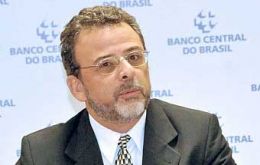
Brazil's current account deficit narrowed in March after an improvement in the trade balance, but it was still the second largest on record for that month, central bank data showed. The country posted a current account deficit of 6.248 billion last month, down from 7.445bn in February.
-
Thursday, April 17th 2014 - 08:15 UTC
Brazilian economy expanded at an annualized 1.63% in February
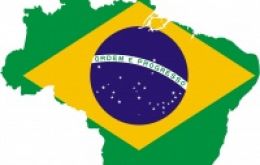
Brazil's economy grew at a 0.24% rate in February, compared to the previous month, the Central Bank said Wednesday. The Central Bank's Index of Economic Activity indicates that the economy grew 1.63% in February, compared to February 2013, while year-on-year growth was 2.41%, up from the 2.29% figure reported in the previous month.
-
Thursday, April 10th 2014 - 06:28 UTC
Brazil's March inflation marks the steepest increase for the month since 2003
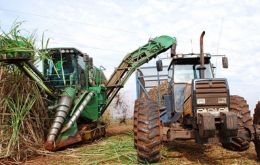
Brazil’s rate of inflation in March picked up at the quickest pace in 11 years for that month, challenging the central bank’s plan to stop raising interest rates soon and complicating President Dilma Rousseff chances of re-election.
-
Friday, April 4th 2014 - 04:26 UTC
Brazil manufacturing activity expands for the fourth straight month in March

Brazil's manufacturing activity expanded for the fourth straight month in March, though at a meager pace as growth in new orders cooled, a private survey showed. The HSBC Purchasing Managers' Index for the Brazilian manufacturing sector rose to a seasonally adjusted 50.6 in March from 50.4 in February. The 50 mark separates contraction from expansion.
